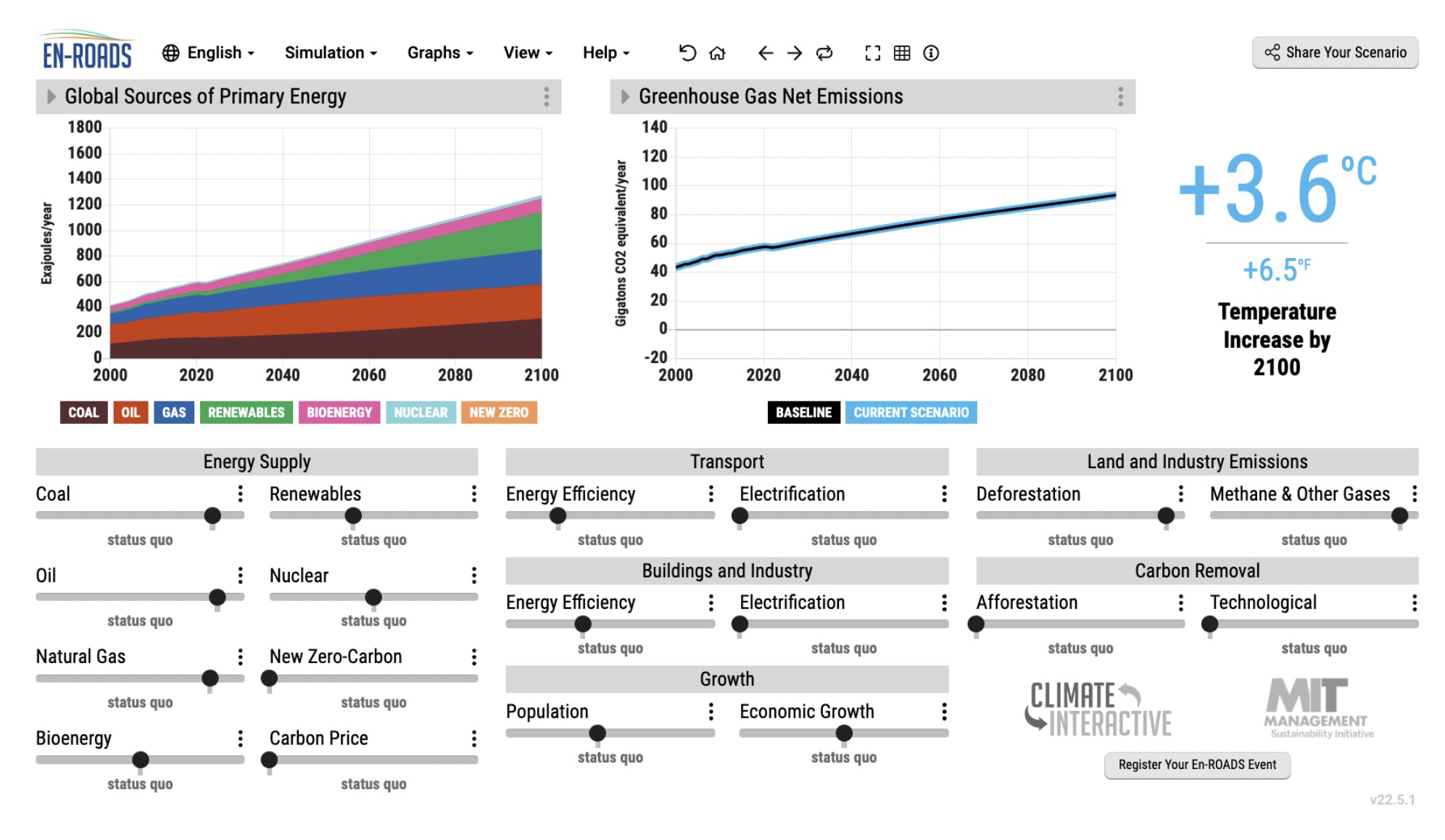YES! is excited to announce our partnership with University of Minnesota’s Institute on the Environment in a National Science Foundation Grant 2147839 where students not only learn and talk about the climate crisis, but are called into action through a mock United Nations summit.
In this mock United Nations summit, students propose climate actions on behalf of eight diverse interest groups. En-ROADS, a data-rich online simulation platform, will show the effects of those proposals on the estimated temperature increase, global energy sources, cost of energy, CO2 emissions, and other endpoints in real time.
The students are given a position briefing and goals for their interest group. Determining plausible, priority solutions within their interest group appears pretty straightforward. For example, the Industry & Commerce group wants to keep energy prices low while increasing energy efficiency and electrification of transportation and buildings. Meanwhile, the Agriculture, Land, & Forestry group wants to reduce deforestation (tree cutting) and limit afforestation (tree planting) so existing agricultural lands remain in production. They also oppose limiting other greenhouse gases, such as methane. Students translate their goals to a series of actions that they can test on the simulator, making adjustments as they observe how their actions affect both the climate and society.

The En-ROADS simulation has been shown to enhance knowledge, bring about a sense of urgency as well as hope, and inspire students to learn more. That’s why the simulation is one pillar, along with project-based learning and near-peer mentoring, of a new research project, “Empowering Youth to Become 21st Century Energy Leaders,” which has received a $1.1 million grant from the National Science Foundation.
The project team, led by Cathy Jordan and Beth Mercer-Taylor at IonE, is interested in understanding and measuring the impact of an innovative near-peer mentoring strategy, which they propose will move students from a place of science, technology, engineering, and math (STEM) awareness to seeing themselves being successful in STEM careers. Their intervention seeks to recruit high school students of color and/or from low income households and undergraduates from similar backgrounds to be the ‘near-peers.’ (National Science Foundation funds near-peer mentoring project to diversify STEM workforce by Kate Nyquist).
As Jordan, Mercer-Taylor and their colleagues will host this climate action simulation with fourteen teams at seven high schools across Minnesota, YES! is eager to encourage these teachers and teams throughout the course of the simulation and have the opportunity to connect these high school teams to their local community as we continue to empower youth to create solutions to today’s ecological challenges through hands-on projects.
Thank you so much to our partners and supporters:



